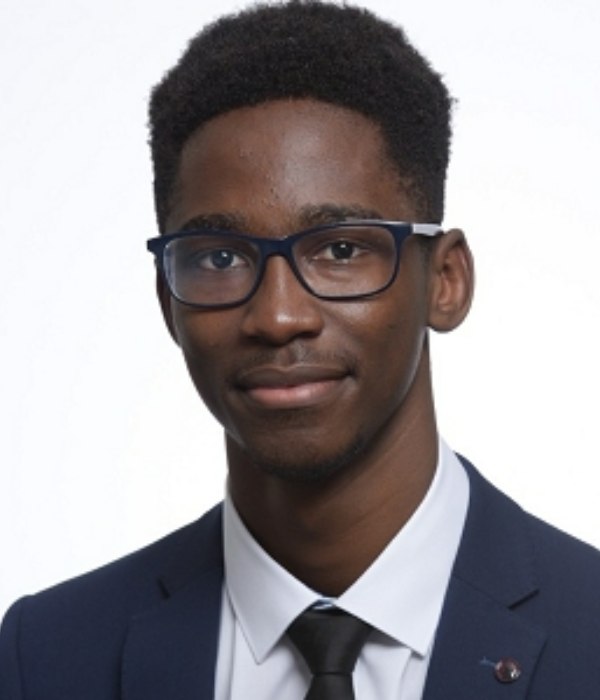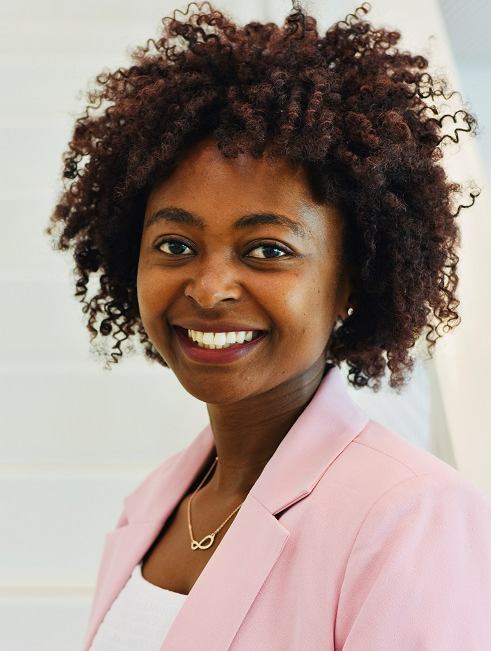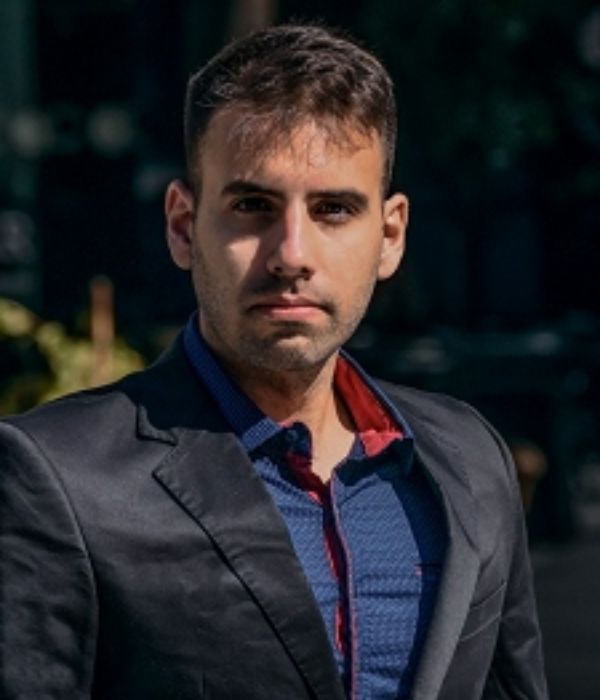
Meet some of Enlit’s Future Energy Leaders who will be the workforce of tomorrow, kitted with the skills needed to usher in a low-carbon era.

Frank Amian
Student in the Energy Environment MSc&T programme at École Polytechnique
Intern in Building Energy Efficiency at Schneider Electric
Drawn to the energy industry due to a background in chemical engineering and a strong desire to contribute to the fight against climate change, Franck believes that efficient energy management is a pivotal element in achieving our climate goals.
“Instead of solely focusing on generating more green energy, reducing demand through efficient energy use is crucial in emission reduction.”
His view on the energy landscape in 10 years:
“Looking ahead a decade, I anticipate that organisations across various sectors will prioritise energy efficiency to reduce their energy demand.
“I also envision nearly all buildings equipped with local renewable energy sources to satisfy a considerable part of their energy needs. The transportation sector, one of the major contributors to pollution, will witness substantial decarbonisation through the integration of green hydrogen and fuel cells.
“Finally, projecting myself in the next 10 years with the current policies, I believe that most of the companies will be net zero with compensation measures.”

Frederik Van Ballaer
Graduate Analyst at Equinor
As a young student, Frederik understood there is an acute need to change the way society deals with energy. “I just didn’t know how to realise this change. I have since become a few years older and hopefully wiser, but I strongly believe my curiosity remains just as strong as it was at the start of this journey.”
And although concepts such as the energy trilemma have provided new avenues for discussion, his personal goal remains the same: to contribute to a sustainable energy future for us all.
His view on the energy landscape in 10 years:
“Ten years would take us past 2030, a key deadline for several of our energy targets and I hope we will see a whole host of major changes in that time.
“I personally expect continued electrification efforts to become one of the most important elements in our quest for decarbonisation. This includes, but is not limited to:
- Renewable energy technologies becoming the dominant source of electricity in many regions, particularly the EU;
- EVs becoming more widespread with expanded charging infrastructure and improved battery technology;
- Building energy management to improve drastically as gas boilers are swapped out for heat pumps coupled with smart energy systems.”

Brida Mbuwir
MSc degree in Electrical Engineering for Smart Grids and Buildings from Grenoble INP
PhD in Electrical Engineering from KU Leuven
For Brida, the pivotal role of energy in facilitating development and attracting societal investment has long been a driver.
“Increasing energy access and reducing energy poverty through cost-effective and renewable energy solutions has been my motivation to pursue this career.”
Her view on the energy landscape in 10 years:
“Ten years from now, our power system will see a cleaner energy mix with wind and solar dominating the energy landscape, and an increase in energy efficiency through the integration of smart control — leveraging technological advancements in internet of things and artificial intelligence — to use demand side flexibility.
“Therefore, much exciting research and development must be done, and quickly. Europe continues to invest in research and innovation for sustainable technologies through initiatives such as Horizon Europe to support breakthroughs in clean energy and green transportation.”
Have you read:
Upskilling key to getting us out of the woods – EUSEW
Closing the digital skills gap is vital for Green Deal success says Van Stiphout

Christos Lois
Master’s student in Chemical Engineering and Management of Technology
Board member of the TU Delft Energy Club
Having worked in multiple energy companies as well as a researcher on fuel technology and energy management/efficiency, Christos’ inspiration for the industry has changed over the years regarding advances in technology.
However, his foremost value is that the field represents an “analogous index to human developmental capacity for civilisation — this has always inspired me in my efforts”.
His view on the energy landscape in 10 years:
“I think we’ll see an adoption of nuclear power more holistically, as it inevitably solves a lot of the problems of modern civilisation. Even though the stigma is quite large at the moment, the benefits in the long term far outweigh the drawbacks”.

Martina Tibaldi
EIT InnoEnergy Graduate with double Masters degree in Energy Technologies and Management
Growing up, Martina understood that there are many problems in the world and most of them can be solved, or at least touched, by the energy field. Specifically, the urgent need to combat climate change, reduce reliance on fossil fuels and transition to a more sustainable and cleaner energy future were Martina’s main drivers.
“This motivation still rings true for me today.”
Her view on the energy landscape in 10 years:
“Looking ahead a decade from now, two of the major changes in the energy landscape for me will be:
“Decentralised energy systems: We will see a shift towards decentralised energy production and distribution. Individual households and communities will have greater control over their energy sources, with more rooftop solar panels, microgrids and local energy sharing.
“Advanced energy storage: breakthroughs in energy storage technology will enable us to store renewable energy more efficiently and affordably. This will reduce reliance on fossil fuel backup and enhance grid reliability.”

Dr Viktória Döme
Research Associate at the Centre for Science, Technology and Innovation Policy at the University of Cambridge
PhD in Public Policy from the Hong Kong University of Science
Technology & BSc in Environmental Sciences from the University of Edinburgh
As a public policy scholar, Viktória came to understand that governments play a large role in providing direction and incentivising technological change. However, the balancing act between net zero targets, different socio-economic and political conditions, capabilities, industrial structures and economic competitiveness make this an ever more complex problem.
“Contributing to changing the status quo inspired me to get into energy policy, which has since been reinforced as I come up against the intricacies of this ever more complex problem.”
Her view on the energy landscape in 10 years:
“Fast forward 10 years from now, I am positive that our energy will largely come from a diverse set of renewable energy sources and that we will be on our way to achieving net zero targets.
“But unless we start thinking about and mitigating the consequences of the technologies we use early on, we may just realise that while we avoided one tipping point, we are at the edge of another.
“Yet, I believe that there is a path forward. I am truly impressed by the recent wave of industrial policies — including the European Green Deal, addressing research and innovation, energy technologies, circular economy and biodiversity — that are imperative for us to achieve a path where we learn to live together with nature.”
The Future Energy Leaders programme welcomes 400 energy students and young professionals to Enlit Europe, the place to be for next-generational talent to explore new technologies from companies and get an overview of the current energy landscape in Europe.



